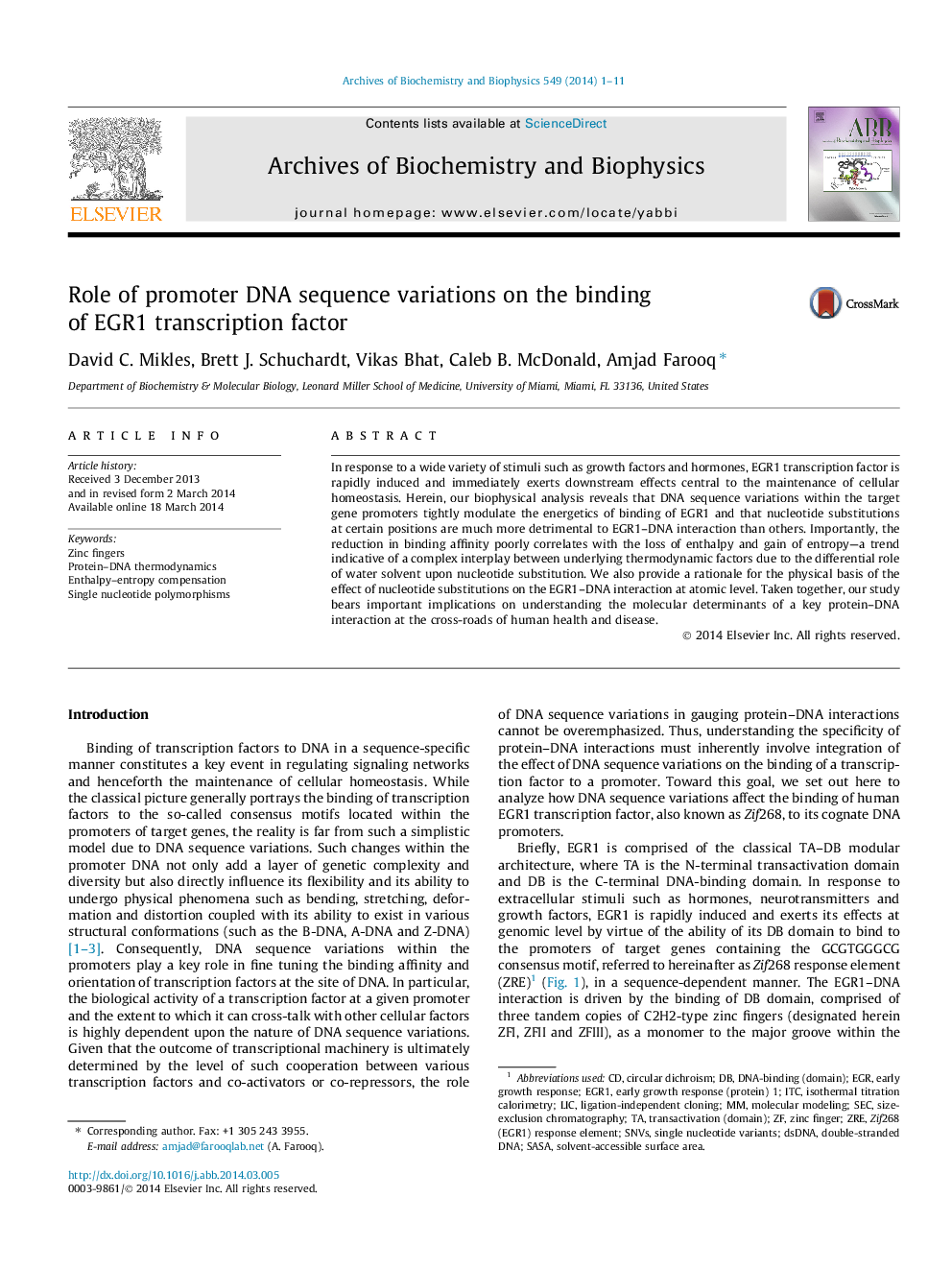| Article ID | Journal | Published Year | Pages | File Type |
|---|---|---|---|---|
| 1925194 | Archives of Biochemistry and Biophysics | 2014 | 11 Pages |
•Nucleotide substitutions tightly modulate the binding of EGR1 to DNA.•EGR1–DNA interaction is more susceptible to sequence variations at certain positions.•Reduction in binding affinity poorly correlates with enthalpic loss and entropic gain.•Nucleotide substitutions result in differential solvation of protein–DNA complex.•Water solvent plays a key role in modulating protein–DNA thermodynamics.
In response to a wide variety of stimuli such as growth factors and hormones, EGR1 transcription factor is rapidly induced and immediately exerts downstream effects central to the maintenance of cellular homeostasis. Herein, our biophysical analysis reveals that DNA sequence variations within the target gene promoters tightly modulate the energetics of binding of EGR1 and that nucleotide substitutions at certain positions are much more detrimental to EGR1–DNA interaction than others. Importantly, the reduction in binding affinity poorly correlates with the loss of enthalpy and gain of entropy—a trend indicative of a complex interplay between underlying thermodynamic factors due to the differential role of water solvent upon nucleotide substitution. We also provide a rationale for the physical basis of the effect of nucleotide substitutions on the EGR1–DNA interaction at atomic level. Taken together, our study bears important implications on understanding the molecular determinants of a key protein–DNA interaction at the cross-roads of human health and disease.
Graphical abstractFigure optionsDownload full-size imageDownload high-quality image (161 K)Download as PowerPoint slide
